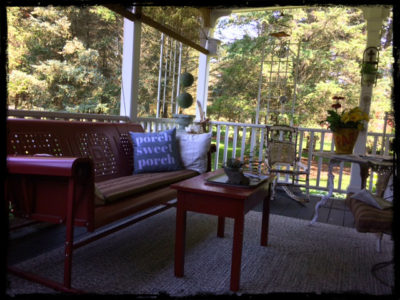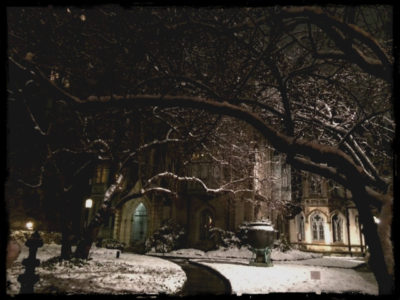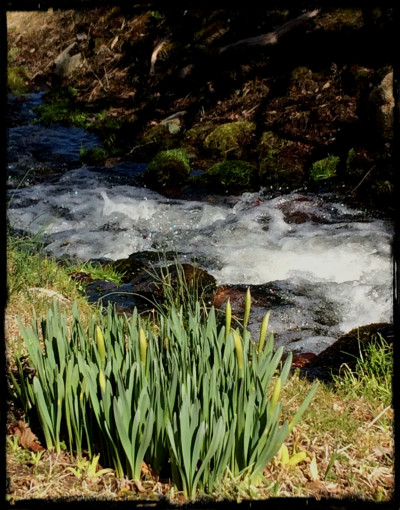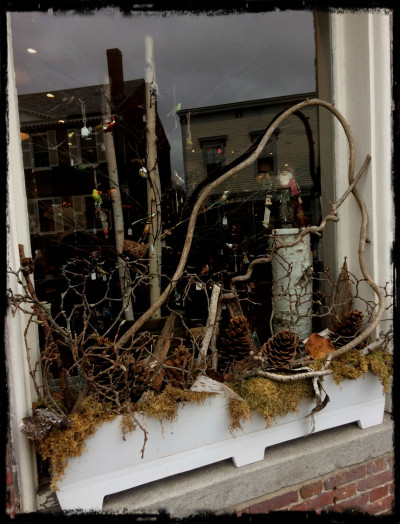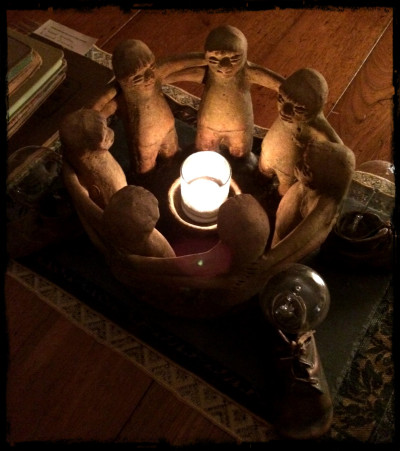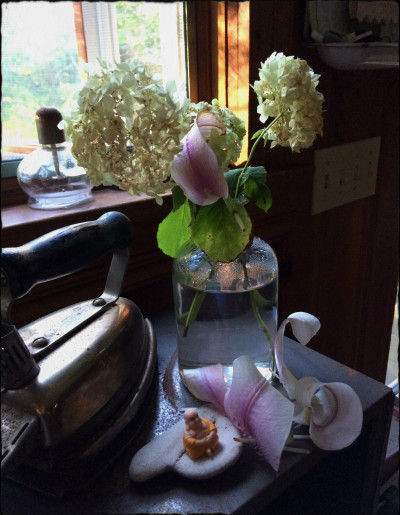What To My Wondering Eyes
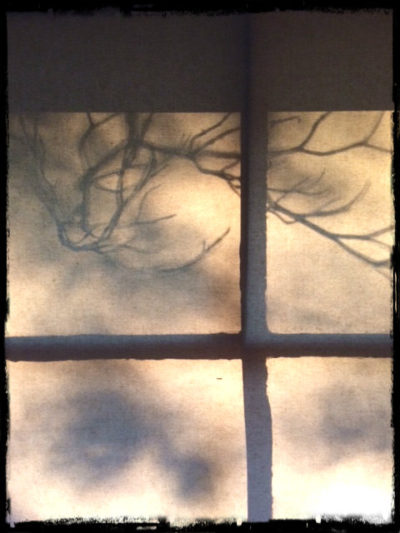
Beyond the Shade
In early winter with its dreariness and still, cloudy days, it can seem as if everything is frozen in sleep, buried in the hard-packed earth. I like this season, especially the days when there is only quiet sans wind, snow, sun, and rain. There is a nothingness, a lack of drama and color and activity that is deeply soothing. A gray flannel blanket of afternoons, if you will.
This apparent nothingness is an invitation to settle down and observe, realizing there are levels and layers to things that go unnoticed during a hustle-bustle day of appointments, to-do lists, urgencies. On the run, the scent of orange perfuming my fingers from the peeled clementine, the breathing of the furnace, the petal falling from the geranium in the bedroom window…all remain outside of awareness…and unobserved are unexperienced.
I have started to meditate, nothing fancy, nothing much to crow about really. Just five to ten minutes after coffee and morning reading. I close my eyes and breathe and breathe and then the tumult begins: images, concerns, wishes, memories, ideas…one piling upon the other like raked leaves, and then I breathe again and breathe again and something else immediately surfaces. It goes on like this, the gentle back-to-the breath patience after a flurry of thoughts.
The practice is teaching kindness. It is teaching detachment. It is teaching the wonder of quiet and how mostly, my being conspires against it. Why, I wonder? What is this restlessness, this resistance to simply sitting still and listening? Why is busy linked with productive? A full calendar with worth? A busy brain with intelligence?
The quiet takes me outside of myself for a few blessed moments and enter the insides of things that often make their way to a poem: the cold blue coffee cup in my hand; dust settling on the creased photo of my mother, father, aunties long gone; the smell of butter melting in the baking scones.
My eyes look around the little back room. I am struck by the pattern of bare dogwood branches beyond the brown shade and take a picture. Only when I look at the photo, do I see the face looking in at me. One more bit of wonder that would have gone unnoticed if quiet hadn’t intervened.
